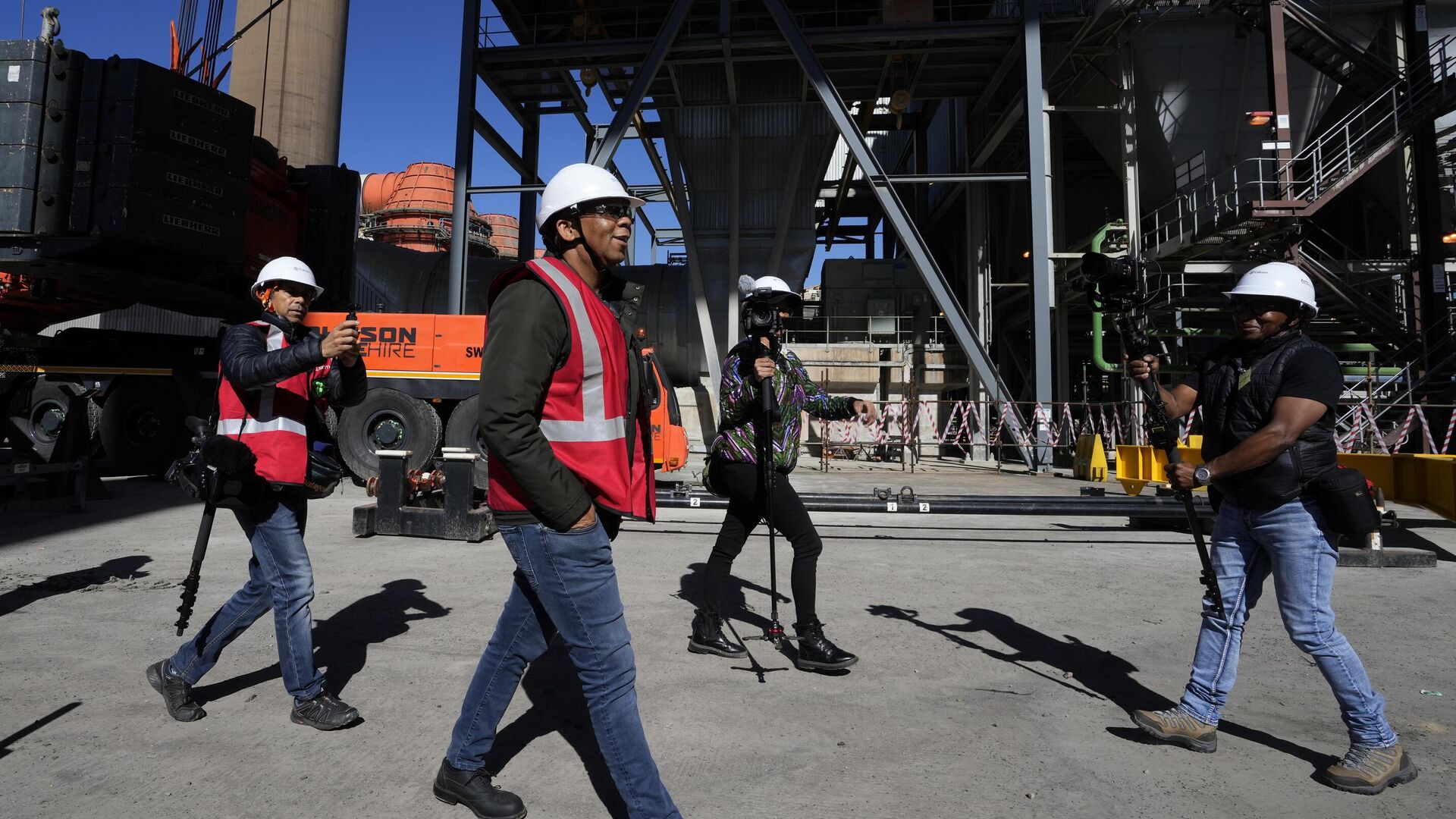https://en.sputniknews.africa/20240714/south-africa-strives-for-bold-nuclear-energy-growth-minister-says-1067502902.html
South Africa Strives for Bold Nuclear Energy Growth, Minister Says
South Africa Strives for Bold Nuclear Energy Growth, Minister Says
Sputnik Africa
In March 2023, President Cyril Ramaphosa established a new ministerial position and nominated Kgosientsho Ramokgopa as the Minister of Electricity and Energy... 14.07.2024, Sputnik Africa
2024-07-14T13:56+0200
2024-07-14T13:56+0200
2024-07-15T17:40+0200
sub-saharan africa
south africa
southern africa
cyril ramaphosa
cape town
electricity
power
energy
energy crisis
nuclear power plant (npp)
https://cdn1.img.sputniknews.africa/img/07e7/09/03/1061828256_0:218:2867:1831_1920x0_80_0_0_b582cc2b934678b06c05792f620d9e36.jpg
South Africa's Minister of Electricity and Energy Kgosientsho Ramokgopa has indicated that the country will grow its nuclear energy industry in order to overcome its electricity shortfall.The aim is to gain Treasury permission for a 2,500 MW power plant by next month, he said, adding that the previous procurement request was for 9,000 MW.Just last week, South Africa achieved 100 days without power cuts, a significant milestone given the recent years of electricity shortages.The South African government decided to build new nuclear power plants at the start of this decade, choosing small modular reactors. Currently, the Koeberg Nuclear Power Station, which opened in 1984 near Cape Town, is the only one on the entire African continent. It has two units with a total capacity of 1,880 MW. Although its license ends in 2025, the government believes it can run until 2045 with necessary upgrades.
south africa
southern africa
cape town
Sputnik Africa
feedback@sputniknews.com
+74956456601
MIA „Rossiya Segodnya“
2024
News
en_EN
Sputnik Africa
feedback@sputniknews.com
+74956456601
MIA „Rossiya Segodnya“
Sputnik Africa
feedback@sputniknews.com
+74956456601
MIA „Rossiya Segodnya“
south africa, southern africa, cyril ramaphosa, cape town, electricity, power, energy, energy crisis, nuclear power plant (npp), renewable energy , nuclear energy
south africa, southern africa, cyril ramaphosa, cape town, electricity, power, energy, energy crisis, nuclear power plant (npp), renewable energy , nuclear energy
South Africa Strives for Bold Nuclear Energy Growth, Minister Says
13:56 14.07.2024 (Updated: 17:40 15.07.2024) In March 2023, President Cyril Ramaphosa established a new ministerial position and nominated Kgosientsho Ramokgopa as the Minister of Electricity and Energy to handle the country's persisting energy crisis. The minister said earlier this week that the resolution of the load-shedding is "within the horizon."
South Africa's Minister of Electricity and Energy Kgosientsho Ramokgopa has indicated that the country will grow its nuclear energy industry in order
to overcome its electricity shortfall.
"We don't want to discredit the process through a procurement procedure that is not transparent; of course, we'll do it at a scale and speed that our country can afford," Ramokgopa told local media before the first Government of National Unity meeting of leadership structures representing all spheres of government.
The aim is to gain Treasury permission for a 2,500 MW power plant by next month, he said, adding that the previous procurement request was for 9,000 MW.
“The procurement structure … will require National Treasury approvals on the financing, you can imagine the magnitude of that deal,” the minister told local media last Sunday. “Before the end of August, we will come out and say this is how we want to do it.”
Just last week,
South Africa achieved 100 days without power cuts, a significant milestone given the recent years of electricity shortages.
The South African government decided
to build new nuclear power plants at the start of this decade, choosing small modular reactors. Currently, the Koeberg Nuclear Power Station, which opened in 1984 near Cape Town, is the only one on the entire African continent. It has two units with a total capacity of 1,880 MW. Although its license ends in 2025, the government believes it can run until 2045 with necessary upgrades.

